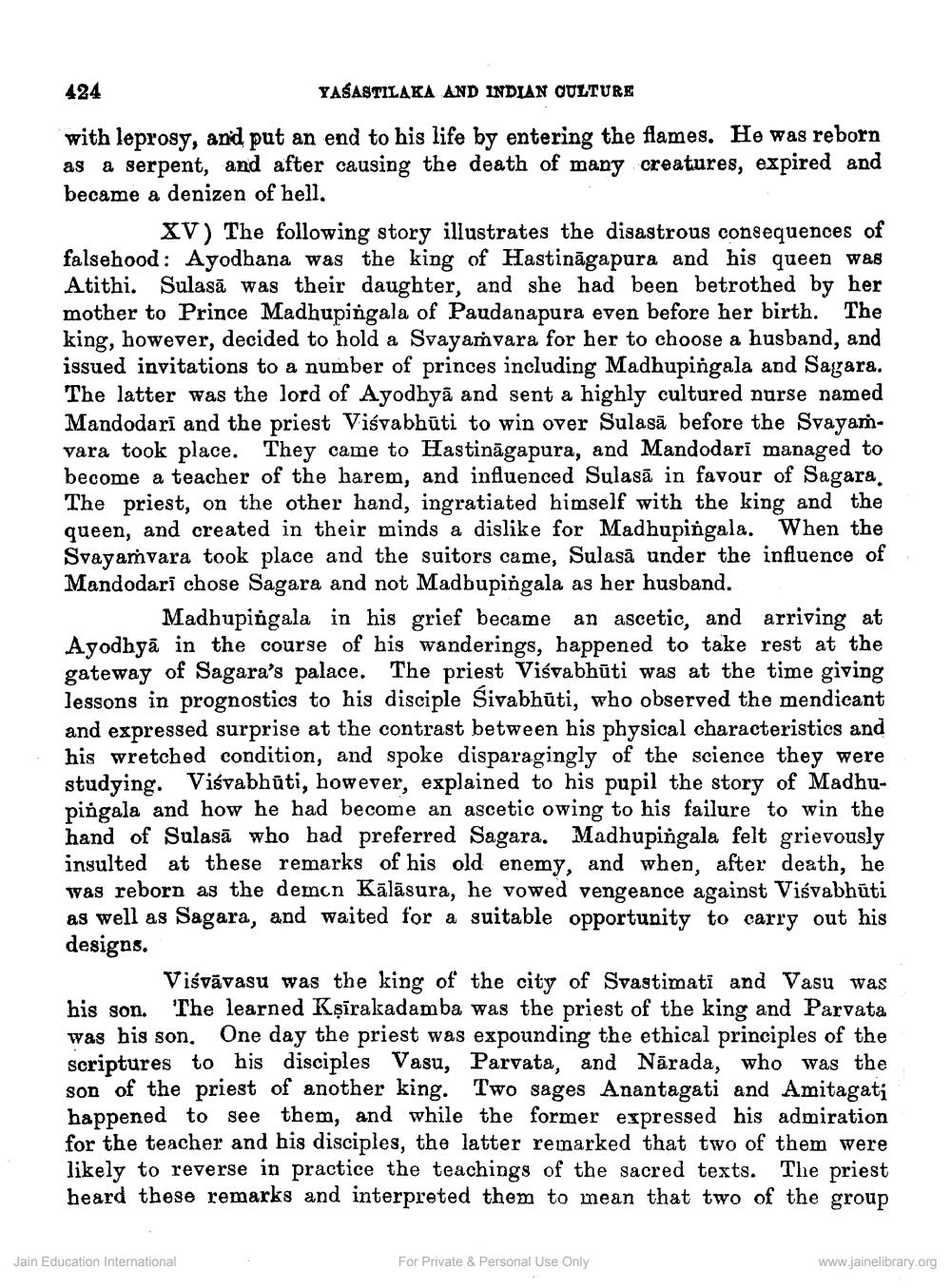________________
424
YASASTILAKA AND INDIAN CULTURE
with leprosy, and put an end to his life by entering the flames. He was reborn as a serpent, and after causing the death of many creatures, expired and became a denizen of hell.
XV) The following story illustrates the disastrous consequences of falsehood: Ayodhana was the king of Hastināgapura and his queen was Atithi. Sulasā was their daughter, and she had been betrothed by her mother to Prince Madhupingala of Paudanapura even before her birth. king, however, decided to hold a Svayamvara for her to choose a husband, and issued invitations to a number of princes including Madhupingala and Sagara. The latter was the lord of Ayodhyā and sent a highly cultured nurse named Mandodarī and the priest Visvabhūti to win over Sulasā before the Svayam. vara took place. They came to Hastināgapura, and Mandodarī managed to become a teacher of the harem, and influenced Sulasā in favour of Sagara. The priest, on the other hand, ingratiated himself with the king and the queen, and created in their minds a dislike for Madhupingala. When the Svayamvara took place and the suitors came, Sulasă under the influence of Mandodarī chose Sagara and not Madbupingala as her husband.
Madhupingala in his grief became an ascetic, and arriving at Ayodhya in the course of his wanderings, happened to take rest at the gateway of Sagara's palace. The priest Visvabhūti was at the time giving lessons in prognostics to his disciple Śivabhūti, who observed the mendicant and expressed surprise at the contrast between his physical characteristics and his wretched condition, and spoke disparagingly of the science they were studying. Viśvabhūti, however, explained to his pupil the story pingala and how he had become an ascetic owing to his failure to win the hand of Sulasā who had preferred Sagara. Madhupingala felt grievously insulted at these remarks of his old enemy, and when, after death, he was reborn as the demon Kālāsura, he vowed vengeance against Visvabhūti as well as Sagara, and waited for a suitable opportunity to carry out his designs.
Viśvāvasu was the king of the city of Svastimati and Vasu was his son. The learned Kşīrakadamba was the priest of the king and Parvata was his son. One day the priest was expounding the ethical principles of the scriptures to his disciples Vasu, Parvata, and Nārada, who was the son of the priest of another king. Two sages Anantagati and Amitagati happened to see them, and while the former expressed his admiration for the teacher and his disciples, the latter remarked that two of them were likely to reverse in practice the teachings of the sacred texts. The priest heard these remarks and interpreted them to mean that two of the group
Jain Education International
For Private & Personal Use Only
www.jainelibrary.org




